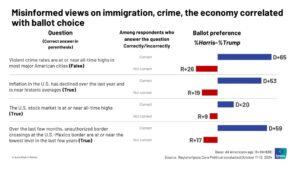I haven’t posted much in recent years. There are two reasons: 1) Better things to do/things I enjoy more and 2) I’ve been a bit more at-ease with the world – not so much with the Big Picture but with it on a day-to-day basis. So much for #2.
“Observe, orient, decide, act.”
The nominal goals of the incoming administration include:
- Economic boom,
- Mass deportation,
- Relegation of half the population to second-class citizen status, and
- Non-violent coexistence with other nations
It doesn’t seem plausible that all of those things can exist simultaneously. #1 is conditional on #4. #2 and #3 will alienate international allies and result in a loss of goodwill that will #4 much more challenging. On the domestic side, imagine that #s 2 and 3 and the violence necessary to implement them will alienate many people who maintain our security. That feels unlikely to play out well in the long run – and perhaps not even in the short run. Our adversaries are opportunistic. They will try to take advantage of internal strife. I hope he goes for #1 and #4. He’ll trash our country just like he has every other one of his ventures, but going for #1 and #4 would leave us in the least worst position when (if?) people get serious about climbing out of the crater. (Prediction: He’ll go for 1-3 and think he can coerce 4. It won’t work and we’ll end up with 2 & 3.)
That’s hope and speculation more than observation but it’s part of how I’m trying to orient myself.

